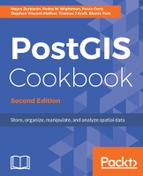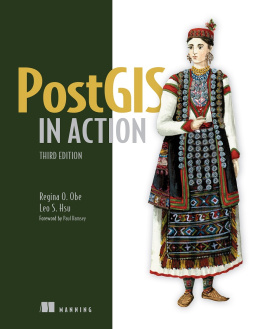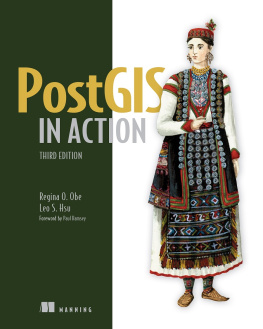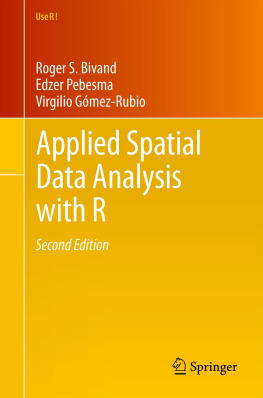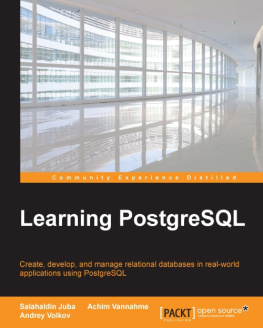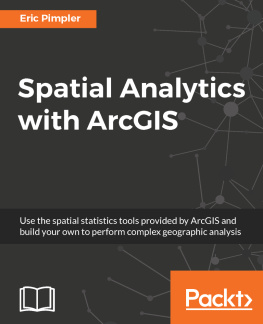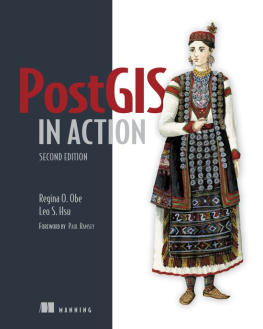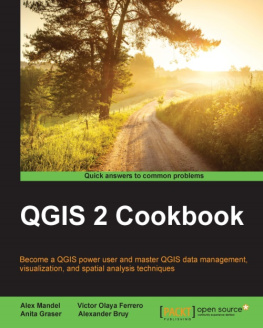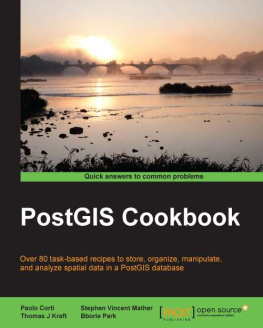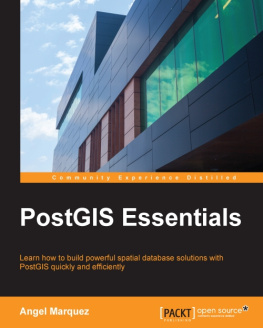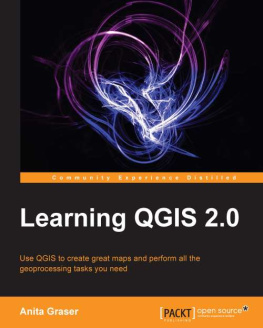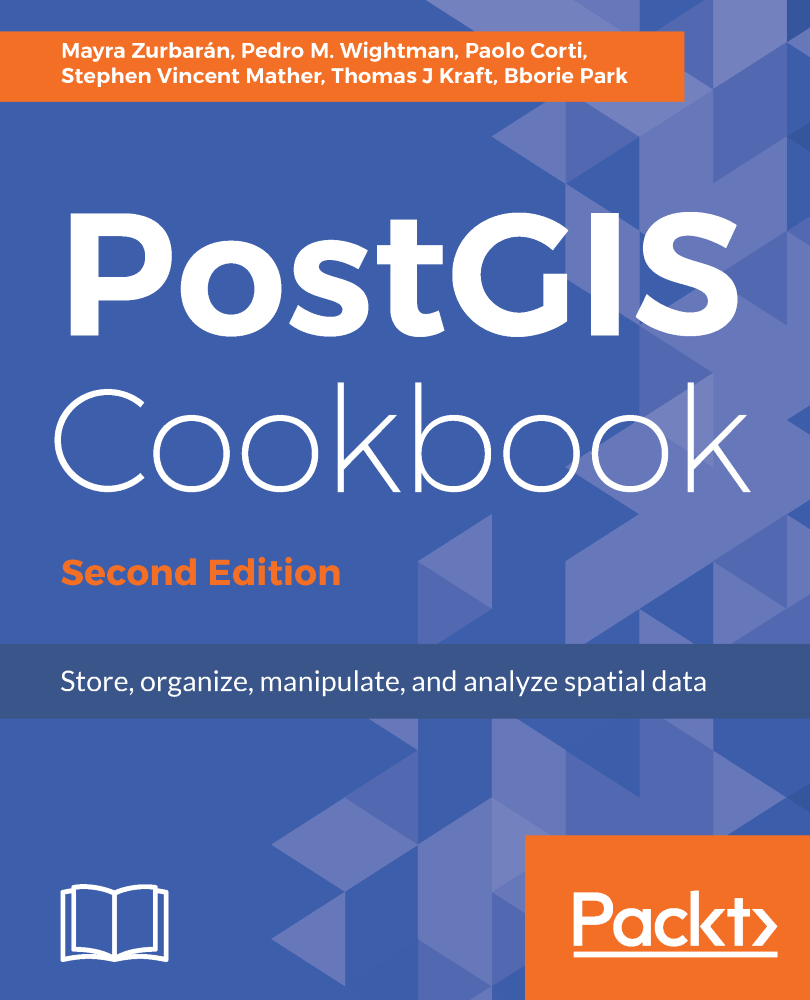Mayra Zurbaran et al. - PostGIS Cookbook
Here you can read online Mayra Zurbaran et al. - PostGIS Cookbook full text of the book (entire story) in english for free. Download pdf and epub, get meaning, cover and reviews about this ebook. year: 2018, publisher: Packt Publishing, genre: Computer. Description of the work, (preface) as well as reviews are available. Best literature library LitArk.com created for fans of good reading and offers a wide selection of genres:
Romance novel
Science fiction
Adventure
Detective
Science
History
Home and family
Prose
Art
Politics
Computer
Non-fiction
Religion
Business
Children
Humor
Choose a favorite category and find really read worthwhile books. Enjoy immersion in the world of imagination, feel the emotions of the characters or learn something new for yourself, make an fascinating discovery.
- Book:PostGIS Cookbook
- Author:
- Publisher:Packt Publishing
- Genre:
- Year:2018
- Rating:5 / 5
- Favourites:Add to favourites
- Your mark:
PostGIS Cookbook: summary, description and annotation
We offer to read an annotation, description, summary or preface (depends on what the author of the book "PostGIS Cookbook" wrote himself). If you haven't found the necessary information about the book — write in the comments, we will try to find it.
Create and manage spatial data with PostGIS
Key Features- Import and export geographic data from the PostGIS database using the available tools
- Maintain, optimize, and fine-tune spatial data for long-term viability
- Utilize the parallel support functionality that was introduced in PostgreSQL 9.6
PostGIS is a spatial database that integrates the advanced storage and analysis of vector and raster data, and is remarkably flexible and powerful. PostGIS provides support for geographic objects to the PostgreSQL object-relational database and is currently the most popular open source spatial databases.
If you want to explore the complete range of PostGIS techniques and expose related extensions, then this book is for you.
This book is a comprehensive guide to PostGIS tools and concepts which are required to manage, manipulate, and analyze spatial data in PostGIS. It covers key spatial data manipulation tasks, explaining not only how each task is performed, but also why. It provides practical guidance allowing you to safely take advantage of the advanced technology in PostGIS in order to simplify your spatial database administration tasks. Furthermore, you will learn to take advantage of basic and advanced vector, raster, and routing approaches along with the concepts of data maintenance, optimization, and performance, and will help you to integrate these into a large ecosystem of desktop and web tools.
By the end, you will be armed with all the tools and instructions you need to both manage the spatial database system and make better decisions as your projects requirements evolve.
What you will learn- Import and export geographic data from the PostGIS database using the available tools
- Structure spatial data using the functionality provided by a combination of PostgreSQL and PostGIS
- Work with a set of PostGIS functions to perform basic and advanced vector analyses
- Connect PostGIS with Python
- Learn to use programming frameworks around PostGIS
- Maintain, optimize, and fine-tune spatial data for long-term viability
- Explore the 3D capabilities of PostGIS, including LiDAR point clouds and point clouds derived from Structure from Motion (SfM) techniques
- Distribute 3D models through the Web using the X3D standard
- Use PostGIS to develop powerful GIS web applications using Open Geospatial Consortium web standards
- Master PostGIS Raster
This book is for developers who need some quick solutions for PostGIS. Prior knowledge of PostgreSQL and spatial concepts would be an added advantage.
Table of Contents- Moving Data In and Out of PostGIS
- Structures That Work
- Working with Vector Data The Basics
- Working with Vector Data Advanced Recipes
- Working with Raster Data
- Working with pgRouting
- Into the Nth Dimension
- PostGIS Programming
- PostGIS and the Web
- Maintenance, Optimization, and Performance Tuning
- Using Desktop Clients
- Introduction to Location Privacy Protection Mechanisms
Mayra Zurbaran et al.: author's other books
Who wrote PostGIS Cookbook? Find out the surname, the name of the author of the book and a list of all author's works by series.

